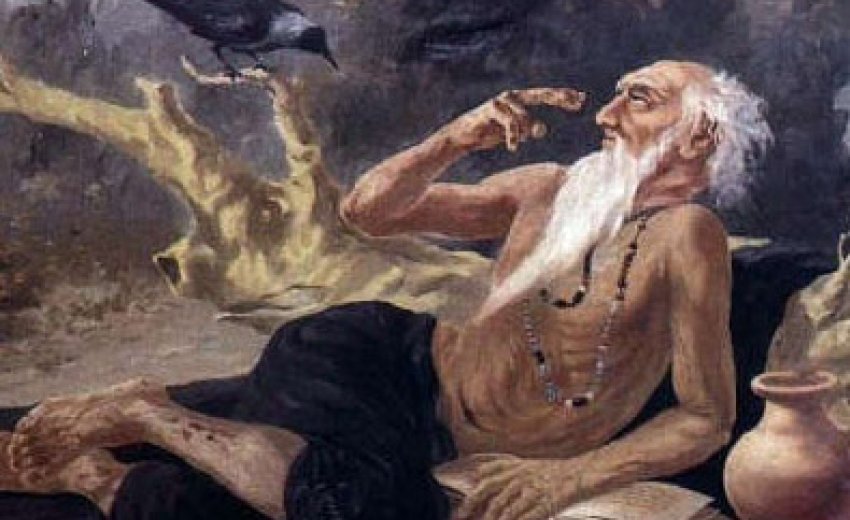Sheikh
Farid-ud-Din Masud reverently called 'Ganj-i-Shakkar' (storehouse of
candy), has been a great patriarch of Punjab and Panjabi language. He
was born and flourished in Punjab during theyears 1173-1265 A.D. He
was a renowned scholar, an eminent man of wisdom and 'a' devoted
darwesh who dedicated his life to the attainment of Union with God'.
He was also a loving and widely revered preceptor who established his
gaddi (holy seat) at Pakpattan, the line of whose disciples included
even the celebrated Sufi saint of Delhi, Sheikh Nizam-ud-Din Aulya.
He was such a prominent and popular moral and spiritual teacher of
men that his holy name has been revered by the people of Punjab now
for almost eight centuries and his blessed birthday is being
celebrated annually with great pomp and show not only at Pakpattan in
Pakistan but also at Faridkot in India, till today. So much so that
his lyrical verses have been preserved and honoured by inclusion,
along with the sacred writings of the Sikh Gurus, in Guru Granth
Sahib, the Holy Book of the Sikh faith; complied in 1604 A.D.by Guru
Arjan Dev Ji. Sheikh Farid belonged to the Chishti Order of the
Sufis.
He was ‘one of the earliest Sufis who
consolidated the humanitarian thought, and traditions of Sufism in
India'. In the course of time, he also became a bridge of moral and
spiritual thought between Muslims and non-Muslims of the Indian
subcontinent. His teachings were of general moral nature exhorting
men to be God-fearing, humble, contented, liberal and compassionate.
These did not smack of any sectarian bias and superior attitude. All
that endeared him not only to his followers but also to the common
folk for hundreds of years.
Sheikh Farid was also a
great and noble poet who sang about his love of God, nature and man
with great passion in 'words of immortal beauty'. His lyrical
effusions consist of 4 beautiful hymns and 123 couplets, called
Shabads and Slokas, as preserved in Guru Granth Sahib. Some of his
verses have become household words and are frequently used even by
the common folk. It is so because these have been composed in a form
which is close to folklore; and couched in simple language and idiom
of daily use in Punjab, the Land of Five Rivers.
The
reasons for such abiding significance of the contribution of his
lyrical utterances, their widespread popularity and continuing
influences in Punjab and on Punjabi language, literature and culture
are quite obvious. The most prominent of these is Farid's adoption of
the mother-tongue (viz. Panjabi) of the common Panjabis for the
expression of his thought and conveyance of his message to them
directly and effectively. According to the available evidence, Farid
was the first to do that. He was also the first Punjabi poet of
Sufism who initiated an original and distinct stream of poetry in the
Land of Five Rivers, called Sufi Kavya-Dhara of Punjab which inherits
a rich and long literary tradition, carrying its continuing influence
and impress even on the modern poetry of Punjab. He thereby, also
laid the base of the literary tradition of Panjabi language and hence
has often been called the Patriarch or Father of Punjabi with a deep
sense of pride.
Through him and his mystical pourings, the
Punjab and Punjabi are justly proud of inheriting a rich and fine
literary tradition which is at least eight centuries old. Sheikh
Farid's message had a wide humanitarian base and a broad human
approach. In an age marked by theological bigotry and great
brutality, he brought the touch of humanity and fellow-feelings to
all. It was he who exhorted one and all to be forgiving, considerate
and compassionate in the following golden words of the language of
the Punjab of his days: (Do not utter even a single unpolite word to
any one, as the true Master abides in one and all. Do not break the
heart of any one, as every heart is a priceless jewel.) It was
because of such a universal message and the aforesaid great qualities
that Guru Nanak and his Apostolic successors, the Gurus, themselves
initiating a great movement of humanity, moral regeneration and peace
among warring sects, incorporated his compositions in their Sacred
Book. So much so that its holy compiler and edition Guru Arjan Dev Ji
(1563-1606), endorsing the message of Farid and advocating the maxim:
'Fatherhood of God and Brotherhood of Man', added his own comment,
addressed to Farid himself, as under: (The Creator dwells in His
Creation, O Farid: and the Creation in the Creator; Who may be called
bad when there is none without Him?)
Farid's message
has, thus, been "of universal value in paving the way for
understanding across the barriers of faiths." When one sings his
verse, called Shabads (hymns) and Slokas (couplets) in which it is so
well couched, "they sink into the mind and slowly the greatness
of the man, the sweetness of his language and warmth of his affection
become apparent". Farid was also the first poet of Punjab and
Punjabi who sang his love and devotion for God in the accents of the
loving and sensitive feminine soul, using the symbol of human
relationship between wife and husband or human love between lover and
the beloved. It was, he again, who first chanted in Punjab and in
Punjabi the pangs of separation of the human soul from the Supreme
Soul, who gave vent to his own personal feelings and expressed his
longings for union with the Divine Beloved in marvelous images and
symbols, such as the following: ("O black koel; what has
rendered you sable-black?" "The fire of separation from the
beloved has done this to me.”

